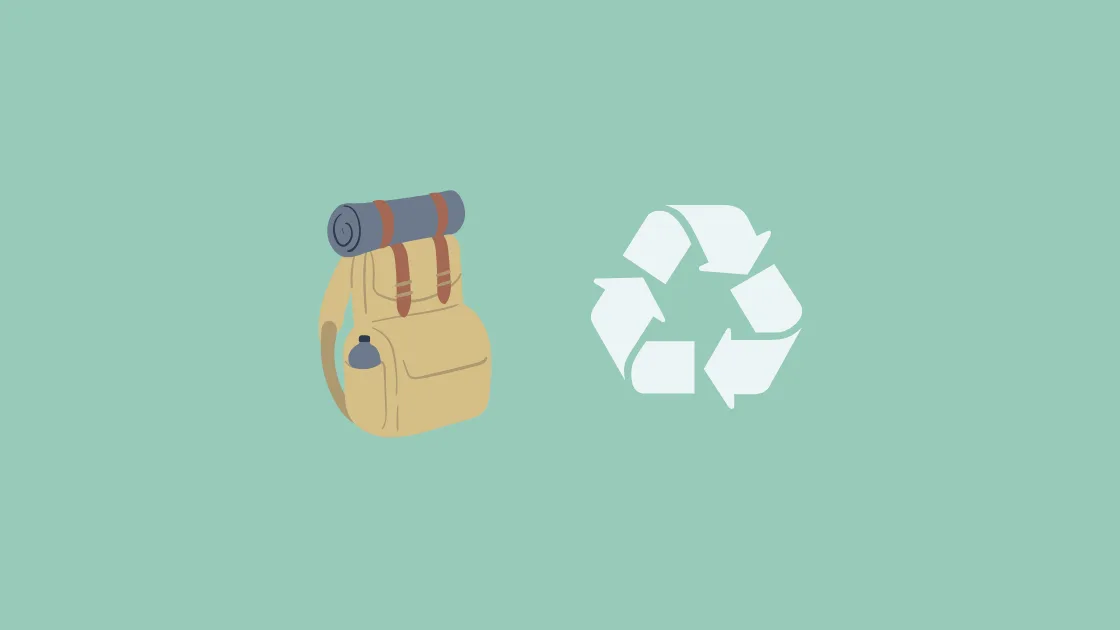In a world where outdoor exploration, sports, and other activities are enjoyed by many, it's vital to consider the environmental impact of our recreation choices. This post delves into excessive manufacturing in the outdoor gear industry to show why renting outdoor equipment for your next adventure may be better for the environment than purchasing a sustainable backpack. Explore how shifts in consumption patterns to favor reuse can positively influence the supply and demand chain while promoting sustainability.
Sustainable Backpacks Contribute to Excessive Manufacturing
Excessive manufacturing occurs when products are produced in quantities beyond what is necessary or reasonable. This practice contributes to various environmental challenges in outdoor gear, including resource depletion, pollution, and increased carbon emissions. The processes involved in producing new equipment – from raw material extraction to manufacturing and transportation – collectively result in a significant ecological footprint.
While there are certainly outdoor brands that have more sustainable production practices, consider how frequently you plan to use your outdoor equipment before purchasing new - even for sustainable backpacks. Backpacking pack rental, for example, provides a great alternative that is both cost effective and more resource efficient than a newly manufactured pack.
Shifting to Sustainable Outdoor Equipment Consumption
Our mindset towards outdoor gear consumption can play a pivotal role in reducing excessive manufacturing.
Shared Utilization: Embracing the sharing economy and borrowing or renting gear when needed can extend the lifespan of products. Allowing multiple individuals to use the same equipment decreases the demand for constant new manufacturing.
Curbing Overconsumption: Avoiding the impulse to acquire new gear for infrequent use helps combat overconsumption. This change in mindset contributes to reduced pressure on manufacturers to produce more than what is necessary.
Circular Economy Principles: Promoting the reuse and repurposing of outdoor gear contributes to a circular economy. By prolonging the life cycle of products, we reduce the need for continuous manufacturing.
Next time you're considering making a new purchase, check out our guide on Renting vs. Buying Outdoor Gear to help with your decision.

Reuse and the Outdoor Retail Supply / Demand Chain
A shift towards sustainable consumption practices also has several positive effects on the supply and demand chain for outdoor equipment:
Balanced Manufacturer Focus: With reduced pressure to produce excessive quantities, manufacturers can shift their focus from volume to quality, innovation, and environmentally friendly production practices. With this approach, more sustainable backpacks can become available on the market so if you must purchase new, you'll have more variety of great products to choose from.
Resource Conservation: Decreased demand for new gear translates to fewer resources being extracted from the environment. This reduction in raw material consumption leads to less habitat disruption and pollution associated with extraction. Societal shifts towards reuse will help keep that alpine lake beautiful for generations to come.
Lower Carbon Footprint: Fewer manufacturing processes mean decreased emissions from outdoor gear production, transportation, and distribution. This contributes to a smaller carbon footprint associated with the industry.
Collaborating for a Sustainable Future
The shift towards reducing excessive manufacturing in favor of rental / reuse is a collective effort that involves both industry stakeholders and outdoor enthusiasts alike. By embracing gear-sharing, informed consumption choices, and a commitment to prolonging gear lifespans, we actively participate in the drive toward a more sustainable future.
As outdoor enthusiasts, we are all responsible for making mindful choices that align with our passion for the natural world. By reducing excessive manufacturing in the outdoor gear industry and advocating for responsible production, we can actively contribute to preserving our beloved natural environments.
Buying that sustainable backpack will simply never be as sustainable as reusing one that is already in the community. Embracing this reality empowers us to align our passion for outdoor activities with a genuine dedication to sustainability, paving the way for a more harmonious coexistence between the outdoor gear industry and the ecosystems it relies upon.
